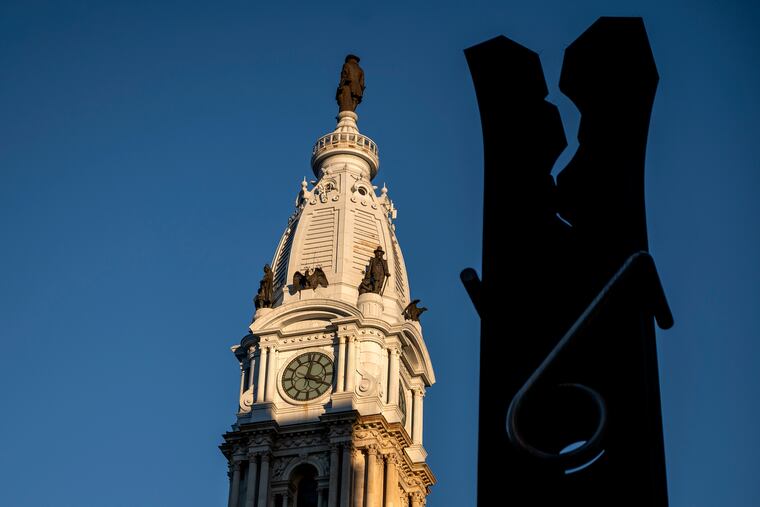State board members worry Philly doesn’t have a big enough financial cushion for emergencies
But that concern is nothing new, and the board voted unanimously to approve the city’s five-year financial plan.

Members of the state board that oversees Philadelphia’s fiscal health said Thursday that they’re concerned the city doesn’t have a large enough financial cushion and that a large, unexpected event in the next five years could wipe out its reserves.
But that concern is nothing new for a city that has rarely over the last several decades had enough cash reserves to meet recommended thresholds, and the board — the Pennsylvania Intergovernmental Cooperation Authority — voted unanimously to approve the city’s five-year financial plan.
The approval was the first of Mayor Cherelle L. Parker’s administration. Members of the board, created during the city’s fiscal crisis in the early ‘90s, praised the mayor’s focus on improving service delivery and public safety. But they repeatedly emphasized that her administration’s plan for the next five years could put the city in a precarious position.
This year, the city is expected to leave about $568.5 million unspent out of its $6.37 billion budget, leaving it with a fund balance of about 9%. That’s well below the Government Finance Officers Association’s recommendation of 17%, or about two months’ worth of expenses.
For years, the city has set its own fund balance goal at 6 to 8%. Under the Parker administration’s plan, reserves would dip even below that threshold by next year and could be as low as 1.8% by fiscal year 2027.
Board member Rosalind W. Sutch said she worries a “black swan event” could effectively wipe out the city’s reserves, which are projected to dip below $80 million by 2028.
She also expressed concern that the Parker administration has not fully budgeted for some of its key initiatives, including the mayor’s plan to build up “wellness centers” for people with substance use disorder. This year’s budget includes $100 million in borrowing to finance a new center in Northeast Philadelphia, but the administration has said those dollars don’t cover everything it needs to build there, and the money doesn’t account for operations or maintenance.
“There’s a lot of things that are significant initiatives of the administration that aren’t even necessarily covered, and even despite that, we’re already in such a precarious situation on the fund balance,” Sutch said. “It’s scary.”
» READ MORE: The city budget has been a source of pain for past Philly mayors. Under Jim Kenney, it’s been a bright spot.
Rob Dubow, the city’s longtime finance director, said the fund balance is a “legitimate concern,” but that the steady decline in reserves over the course of the five-year plan are in line with past projections.
“That’s kind of been our decision,” Dubow said, “that we, given all the needs of the city, will be making investments in things like... public safety and clean and green rather than building up the fund balance to 17%.”
He said the city has also made contributions to bolster its rainy day fund, which is expected to more than double by 2027 and exceed $280 million.
One area that was of less concern to the board this year was the impending exhaustion of federal pandemic relief dollars. Philadelphia received $1.4 billion under the American Rescue Plan, and that money must be used by the end of this calendar year — city budget officials said it’s expected to be entirely spent by this fall.
“It is obviously a big hit to our revenues,” Dubow said, “but... it was something that we knew was coming, and what we said for years is that it’s going to go away.”
He said there would be no drop-off in city services — whether they be sanitation, policing, or regulatory enforcement — as a result of no longer having those dollars to lean on.
“We’re actually expanding services,” he said.